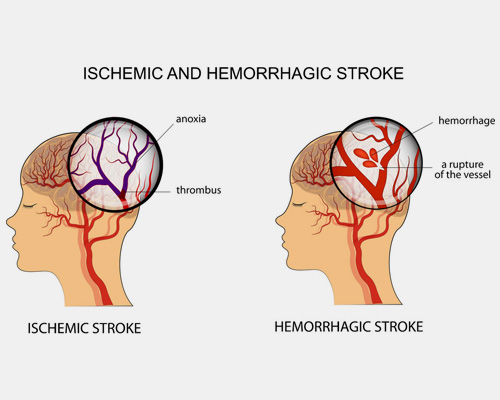Are there different types of Strokes?
There are 2 main types of strokes: ischaemic stroke and haemorrhagic stroke.
Ischaemic stroke
Ischaemic stroke is the most common type of stroke and is caused by a blockage of the blood vessels supplying the brain. This may be due to 'hardening' and narrowing of the arteries (atherosclerosis) or by a blood clot blocking a blood vessel
One type of ischaemic stroke is a thrombotic stroke. This is caused by a blood clot (thrombus) in one of the arteries of the head or neck, which severely reduces the blood flow. The thrombus may be a result of a build-up of fatty deposits (plaques) in the blood vessels.
Another type of ischaemic stroke is an embolic stroke (or cerebral embolism), caused when a blood clot that forms elsewhere in the body (for example, the chambers of the heart) travels through the circulatory system to the brain. The travelling clot is called an embolus.
Haemorrhagic stroke
The most severe type of stroke is a haemorrhagic stroke. It occurs when a blood vessel in the brain bursts, allowing blood to leak and cause damage to an area of the brain. There are 2 types: subarachnoid haemorrhage, which occurs in the space around the brain; and an intracerebral haemorrhage, the more common type, which involves bleeding within the brain tissue itself.

